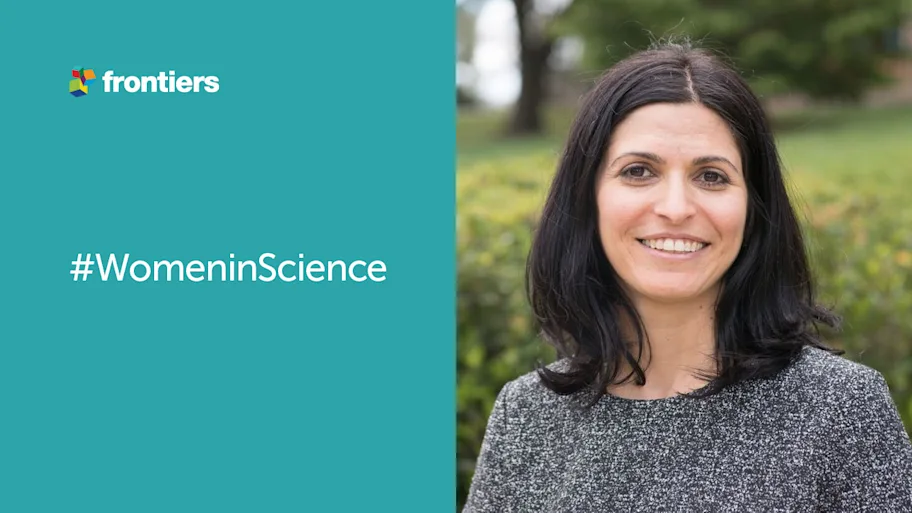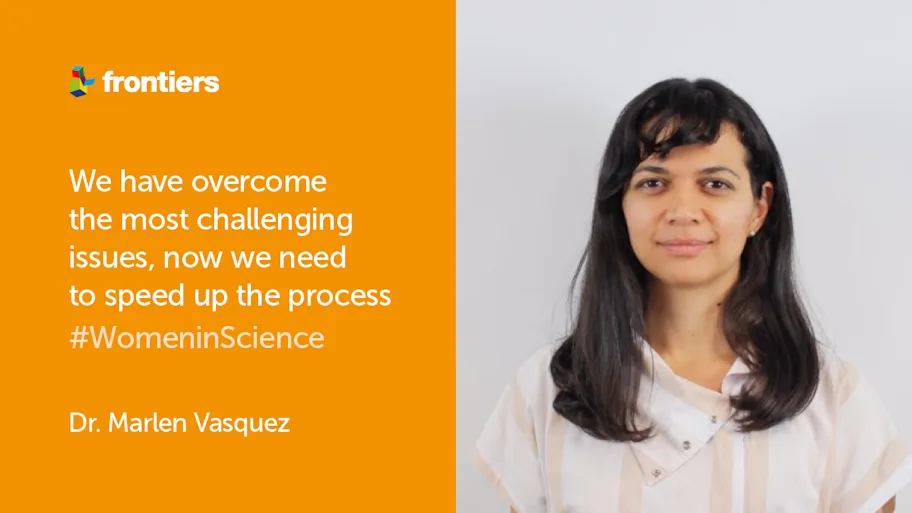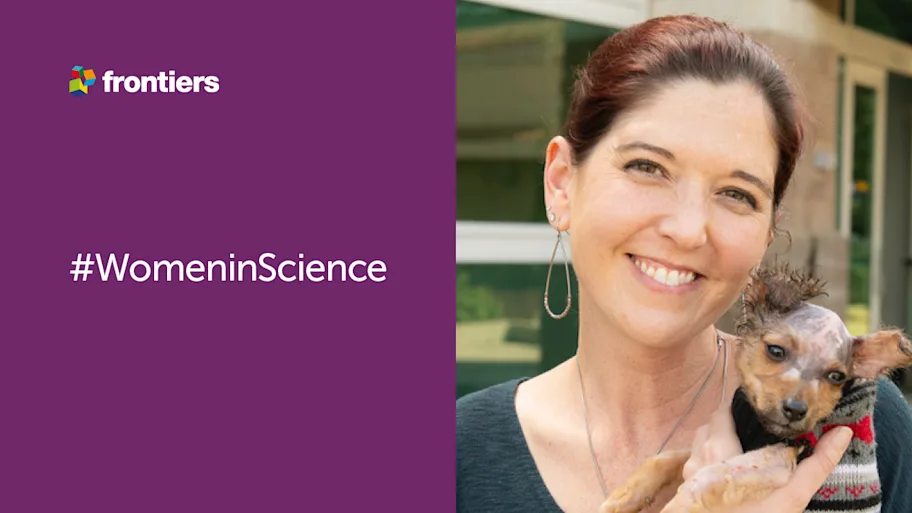
- Science news
- Frontiers news
- The Moment Cancer Research Became My Purpose #WomeninScience
The Moment Cancer Research Became My Purpose #WomeninScience
This month in our #WomeninScience blog series, journal specialist for Frontiers in Medical Technology Rita Moreira speaks with Dr. Dhivya Sudhan from the UT Southwestern Simmons Cancer Center.

Dr. Dhivya Sudhan, from the UT Southwestern Simmons Cancer Center, Associate Editor for Frontiers in Oncology - Women’s Cancer, greeted me with a prototypical 2020 smile covered with a facemask. We talked about her work and insights in the field, motherhood, and, of course, gender bias.
“Our work”, she said, “is mainly focused on translational research, looking at how we can advance breast cancer treatment and improve the lives of those inflicted with cancer. We are doing really well with treating early breast cancer, but the problem is metastatic breast cancer. In the last few years, there has been development of new agents, which have improved the survival of patients with metastatic breast cancer. Despite these improvements, metastatic breast cancers remain incurable. You can prolong life, but you cannot get rid of the cancer."
We had our discussion during Breast Cancer Awareness Month, and I wanted to know Dr. Sudhan’s personal view regarding this initiative. “Breast cancer is one of those few cancers which are highly curable, if caught early. 80-90% of patients with early ER+ or HER2+ breast cancers are cured - you do not see that often in other types of cancers. If you have your mammograms routinely, it can be caught early on. However, unfortunately, I think that in a lot of underdeveloped and developing countries, either there is a lack of such awareness among women, or there is a lack of necessary infrastructure to support early detection. I think the importance of early detection cannot be emphasized enough because it can save so many lives, save so many people from the emotional and financial trauma that cancer inflicts. Investing in this area would benefit a lot of women and their families.”
When talking about her upbringing, Dr. Sudhan assured that she was always interested in biology and science. “It was always fascinating to me, even as a kid. It was mind-blowing realizing how our bodies and cells operated.” She continued discussing her early days and her first encounter with cancer, “When I was in my undergrad, one of my friends said ‘Hey, I need to go donate blood - do you want to come along?’. I did not realize what I was signing up for, he was going to donate blood to a kid that had leukemia. Here I was at Tata Memorial, one of the biggest cancer hospitals in India, that too on the pediatric floor. The amount of pain that I felt in that space was almost palpable. It was not only the pain of kids fighting cancer, but also the unimaginable grief of their parents. That memory is still so vivid, but it is also a constant reminder for me to do better. That was the moment I knew I had to do something to change this.”
As a young female scientist growing up in India, she never felt pressured by her family to do anything that she did not want to, or to be a different person. “Contradictory to the notions you hear about women's suppression or early marriage, my parents always encouraged me to pursue whatever interested me. It was very important to them that I truly enjoyed whatever path I chose for myself. They encouraged me to explore various avenues so I can figure out where my true passion lies. I consider myself very fortunate to have such supportive parents, and nurturing environment that fostered my growth.”
Not surprisingly, our conversation moved to the topic of COVID-19 and the new modus operandi of life today. When discussing motherhood, especially after several tough lockdowns, Dr. Sudhan sighed: “It was not easy, by any means. My husband works in a different city. He is with us every other week, but I am technically a ‘single’ mother because I take care of my daughter on my own. It wasn’t easy, but I am very thankful because my boss and my coworkers were all very understanding of how difficult the situation was – well, it still is very difficult.”
“Covid-19 struck and we were forced into this lockdown, but there were still papers that needed to be completed, grants that needed to be submitted, all while being a full-time parent. There was no structure to my day, it felt like I had completely lost control of my schedule. I was with my daughter, but I wasn’t really there. You know? I was physically present, but not so much mentally. There was this constant guilt of not being able to be a good mother, and the constant guilt of not being productive at work. I was working round the clock either as a researcher or as a parent, hurting myself… But then I quickly realized I was not in this alone. Everybody was challenged and stretched to varying extents. Sure, it is inconvenient, but once I started looking at the big picture, I became thankful that I and my family were safe, I still had a job. So, I just count my blessings. I’m thankful and I hope we can get through this soon.”
Dr. Sudhan could not help pointing out that “there’s not enough support in childcare – especially during doctoral and postdoctoral training. “If I need to come in for extra hours, my thought is ‘oh it is so expensive, how do I afford a nanny? Childcare incentives could be so helpful to trainee-moms. I think it is particularly difficult when both parents are in research because we both have high-demanding jobs.”
Undeniably, there is a concrete bias that affects female scientists, and the pressure is not comparable. “When you finish your PhD and start the postdoc, those five years are so crucial because you’re supposed to figure out the next step in your career. But that is also the time when a lot of trainees start their families. I wanted to work extra hard to meet my career goals, but I also didn’t want to be an absentee mom. I want to be there for my daughter and watch her grow. At some point, I felt like even though I was achieving things, the stress of not achieving as much as I wanted came in the way. And I was not giving myself credit for what I had built. I was always focusing on the unchecked boxes in my checklist.”
Towards the end of our heart-warming and important discussion, I had to raise the question:
What would your words of wisdom be for a young girl planning on working in a male-dominated scientific subject?
“Never allow anyone tell you that you cannot do something, just because you’re a girl. Women are blessed with a lot of endurance. So, whatever is your dream, no one can stop you from getting there.”






